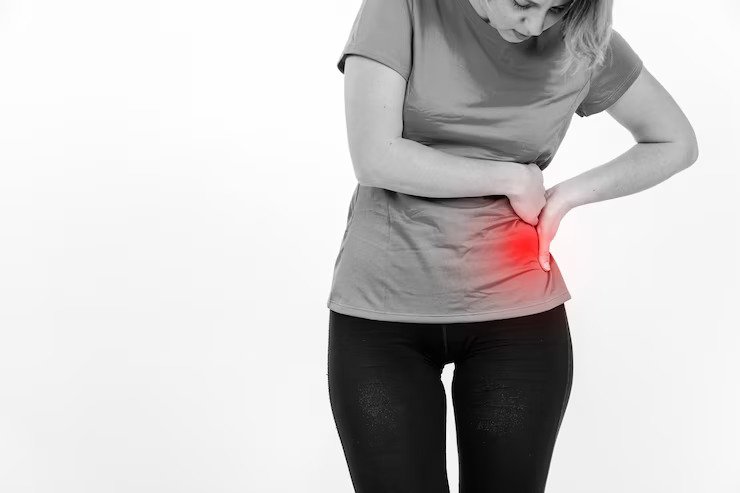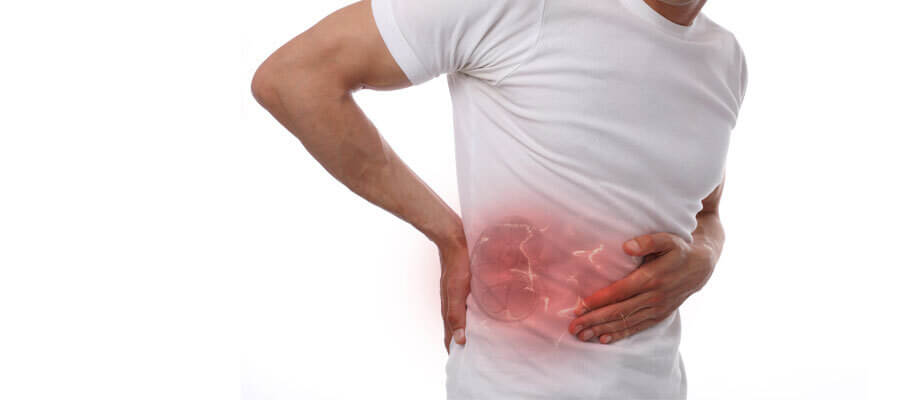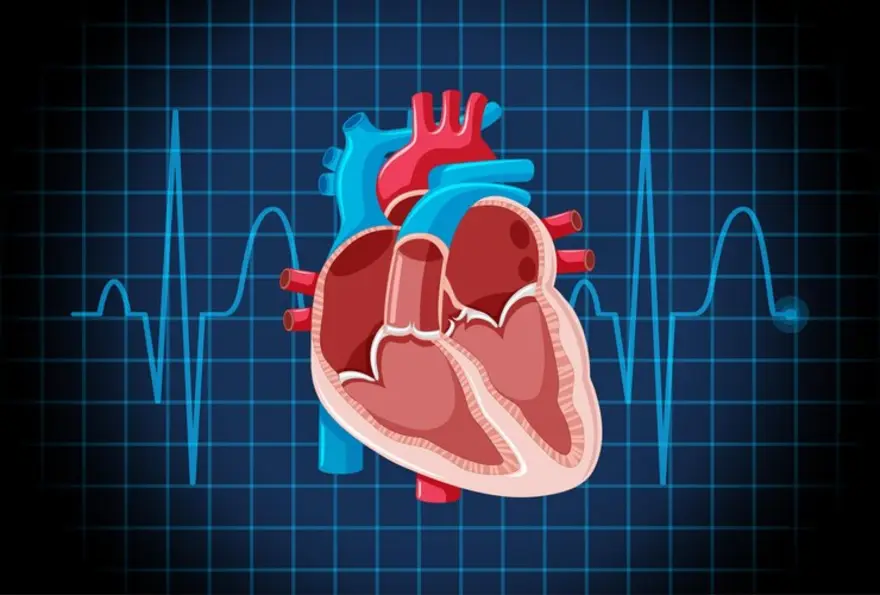kidney stones symptoms
Kidney Stones Symptoms: Everything You Should Know
Kidney Stone Symptoms: An Overview Kidney stones or renal calculi are among the most prevalent urinary ailments. It leads to the formation of robust fragments made from calcium oxalate ranging from minute particles to that of a golf ball. While minute stones pass off naturally by urine, larger stones lead to profuse discomfort. Men are more prone to developing early signs of kidney stones than women. If you experience painful urination or frequent lower back pain, it might indicate underlying UTIs or existing nephroliths. Check out this blog to learn more about potential kidney stone symptoms. 10 Signs of Kidney Stones You may need a kidney stone diagnosis if you experience one or more of the following symptoms usually found in patients with renal calculi. These include: 1. Sharp Lower Abdominal Trauma Unlike muscular inflammation, underlying kidney stones lead to excruciating pain that spreads around the lower abdomen. It exists like sharp waves of contraction and may move around the colic flexures. Lower abdominal pain is a primary kidney stone symptom. It confirms the presence of massive renal calculi that causes pain when moving around the kidney near the intestinal region. 2. Profuse Discomfort While Urination Kidney stones can lead to dysuria or painful urination. You may also experience a sharp burning sensation because renal calculi lead to inflammation from failing to pass from the ureters to the urinary bladder. It's also a sign of underlying UTIs. If you feel prolonged discomfort when urinating, consult a urologist for a kidney stone diagnosis. 3. Abnormal Micturition If your kidney contains renal calculi, it can cause obstructive urination. This can lead to irregular or low urine output, meaning you may need to frequent the washroom at odd intervals. You may also experience an inability to contain urine for long periods. It could indicate both signs of kidney stones and underlying UTIs. 4. Presence of Blood in the Urine Most patients with intestinal and urinary infections pass blood with the urine. Also known as haematuria, it's impossible to detect by the naked eye but includes a marked brown colour of urine distinct from its natural yellowish tint. Remember, haematuria is a common symptom of various ailments like prostate cancer, kidney malfunction, and underlying circulatory issues. If you experience pinkish or reddish urine, promptly contact your physician for a kidney stone diagnosis. 5. Foul Odour and Cloudy Urine Texture Natural urine is crystalline, which means you will not detect a hazy texture upon release. Kidney stone symptoms lead to pyuria, meaning pathogenic presence in the urine, leading to cloudiness. Foul urine odour is abnormal and indicates renal calculi, among other complications. While urine stench may suggest liver ailments, it's different from foul odour arising from bacterial decomposition of urea. 6. Unable to Urinate From Blockage of UT Kidney stone symptoms also include blockage of the ureters, a pair of smooth muscular tubes that transfer filtered urine from collecting ducts to the urinary bladder. It leads to abnormal urine flow, which is different from bladder dysfunction. Remember, ureter blockage can be fatal as it leads to toxic accumulation of urea in the kidney, best understood through little or no micturition in the last 24 hours. 7. Unexplained Inflammation Kidney stones can lead to pyuria, that is, an abundance of pathogens in your body. It shall lead to sudden fever or body inflammation with abdominal pain, making it among the prominent signs of kidney stones. If you experience recurrent fever with urinary discomfort, it could suggest renal calculi in addition to UTIs. Consult a urologist before consuming antipyretics to reduce your fever. 8. Frequent Nausea Individuals with GI infections experience frequent nausea and vomiting tendencies. It could also be among kidney stone symptoms since renal calculi passing around the kidney can trigger shared nerves that cause stomach upset. If you experience nausea with recurrent lower back inflammation, seek clinical consultation for prompt diagnosis before trying OTC medications. 9. Inflammation Around Reproductive Organs Besides abdominal pain, signs of kidney stones include reproductive organ inflammation in both men and women. It happens if renal calculi inflammation reaches the testicular wall (men) and irritation in the labia and vulva (women). It also leads to irregular discharge in females, besides recurrent pain in the groin region. These signs are also similar among patients with UTIs, making it essential to seek consultation with a urologist to know accurately about your condition. 10. Translocation of Abdominal Pain Lower-back abdominal pain is among the vital signs of kidney stones. Furthermore, the pain is not static like muscular cramps but moves around as the renal calculi pass through the kidney, triggering various nerves in the vital region. The pain can shift near your lower ribs or spread out to reproductive organs, imparting a feeling of unknown roaming objects. Abdominal pain is a common symptom of many ailments. Irrespective of your existing condition, please consult a doctor to get diagnosed for underlying complications before consuming medications. Conclusion Kidney stones symptoms are health complications from underlying anomalies like kidney stones, gastrointestinal issues, and an oxalate-rich diet. A treatable condition, this can resolve naturally if renal calculi stones are small. If you experience the above symptoms, it suggests large nephroliths obstructing the urinary tract, meaning you need prompt clinical support. A urologist would suggest multiple pathological tests to measure calcium levels in your blood. Would you like a home collection of blood samples? Metropolis Lab provides seamless test sample collection through trained technicians (phlebotomists) who forward them for evaluation at state-of-the-art diagnostic laboratories. Do you have frequent micturition troubles? Consult with a urologist today to get checked for signs of kidney stones. If you need a customized pathological package for in-house sample collection, check out the best offers from Metropolis Lab.
Kidney Stones: Causes, Treatment and Diagnosis Options
About 50% of the Indian population that is expected to have urinary stones may end up with loss of kidney functions. In fact, every year, more than half a million people have to go to emergency rooms for kidney stone related problems. Book your kidney function test right away, if you have been delaying it for long. Please note this test has got other names as well, such as renal profile test or renal function test. “Renal” means connected to your kidneys. What exactly is a kidney stone? Kidney stone is a solid, pebble-like piece of material that can form in one or both of your kidneys. Urine contains various wastes dissolved in it. Usually, these waste materials are eliminated by the body's filter, the kidney. When the urine is too concentrated or there is too much waste in too little liquid, crystals may begin to produce. Other elements (like calcium, oxalate, urate, cystine, xanthine, and phosphate) get attached to the crystals and together form a solid. This piece will get larger unless it is passed out of the body with the urine. Some stones stay there in the kidney(s), but do not cause any troubles. A few kidney stones are as small as grains of sand, others can be as large as a golf ball. At large, the bigger the stone, the more noticeable are the kidney stone symptoms. Along with your kidneys, make sure to schedule basic health checkup. Check out the full body checkup cost here. What do kidney stones feel like? Symptoms could be one or more of the following: Severe pain on either side of your lower back. The pain often starts suddenly and appears in waves. Vague pain or stomach ache that doesn't go away Blood in the urine Nausea or vomiting Fever and chills Foul-smelling or cloudy urine How are kidney stones diagnosed? 1. Medical and dietary history Have you had more than one stone before? Has anyone in your family had kidney stones? Both of these can up your risk of developing a kidney stone. Also, you may be eating foods that are known to increase the risk of stones or not drinking enough fluids. A deep understanding of your medical, family and dietary history enables your doctor to find out how likely you are to form more stones. 2. Blood and Urine Tests After taking a complete history and doing a physical exam, you may be asked for blood and urine culture and sensitivity test samples. Urine analysis helps check for urinary tract infection or crystals that are typical of different stone types. 3. Imaging Tests Your doctor may want to see inside the urinary tract through X-ray. Imaging tests may be repeated over time to check for stone growth. An imaging like ultrasound or X-ray can be asked if you are having pain, blood in your urine, or recurrent urine infections. 4. Stone Analysis If you pass a stone or a stone is removed by surgery, testing the stone will help identify what kind of stone it is. This helps your doctor to decide the best way to prevent future stones. Apart from blood tests to check that your kidneys are working properly, the levels of substances that could cause kidney stones, such as calcium, can also be checked. What may give you a kidney stone? Low Urine Volume A constant low urine volume that may come from dehydration (loss of body fluids) from hard exercise, working or living in a hot place, or not drinking enough fluids causes urine to become concentrated and dark in color. Concentrated urine means there is a high likelihood of developing stones. Hence, make sure you get enough fluid each day. Daily Diet Calcium is a common element that contributes in developing kidney stones. One of the most common causes is high levels of calcium in the urine. Raised urine calcium levels may be due to the way your body handles calcium. But it does not mean you need to lower the amount of calcium in your diet. It can be detrimental for bone health and may increase kidney stone risk. The idea is to lower urine calcium. One way to reduce your urine calcium level is by decreasing your salt (sodium) intake. Too much salt keeps calcium from being reabsorbed from the urine and into the blood. Lowering salt intake helps decrease urine calcium. Other than this, eating foods rich in oxalate may also raise your risk of forming kidney stones. Obesity Being obese may change the acid levels in your urine, that may lead to kidney stone formation. Medical conditions Certain medical conditions that cause diarrhea or gastric discomfort (such as Crohn's Disease or ulcerative colitis) can raise the risk of developing kidney stones. This may happen due to diarrhea resulting in loss of large amounts of fluid from the body, that lowers urine volume. Continuous diarrhea may also cause imbalance in electrolyte levels. Family History If you have a family history of kidney stones, it is important to keep an eye on symptoms and get tested early on. Watch your kidney health with our carefully curated Kidney function test and ensure all parameters are within normal range. How are kidney stones treated? Treatment depends on various clinical factors including the type of stone, how large it is, and how long you have had the symptoms. A few of the common options include: Stone may pass by itself It is highly likely for smaller stones to pass on their own through urine. No specific treatment is needed in this case. You can wait as suggested by your doctor as long as the pain is bearable and may need pain killers in between, there are no signs of infection. Medication Certain medications, like tamsulosin, make it easier for the stone to pass. Follow your doctor’s advice for medicine dosage. Surgery You may need surgery for kidney stones if: -The stone fails to pass. -The pain is too much to bear -The stone is affecting kidney function or causing infection. Small stones in the kidney may be left alone if they are not causing pain or infection. These days, surgery usually involves small or no cuts), minimal pain and time off work. You can start off with normal activities after about one-to-two weeks. Surgeries to remove stones in the kidneys or ureters may include Shock wave lithotripsy (SWL), Ureteroscopy (URS), Percutaneous nephrolithotomy (PCNL) at large. Open, laparoscopic or robotic surgery may only be needed if other less invasive procedures fail or seem to not work in your case. Your doctor may ask for certain blood tests and X-rays while you are still being treated to monitor your condition. Talk to your doctor about what is best for you. Also, never forget to ask for tips to prevent stones in future.
 Home Visit
Home Visit Upload
Upload
















 WhatsApp
WhatsApp